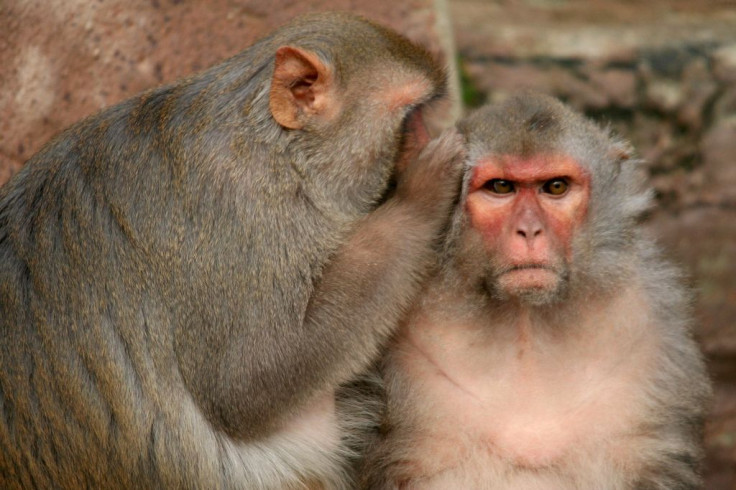Cutting Calories Will Not Prolong Life in Monkeys

While cutting calories has been found to improve metabolism, reduce diabetes and cancer risk and build a stronger immune system, a two decade long study debunked a long-held theory that food restriction leads to the fountain of youth.
For years scientists have believed that eating fewer calories means living longer lives, which previous studies have proven to be true in smaller animals with shorter life spans like mice and rats.
The first finding came in the 1930s, when researchers found that reduced food intake prolonged the lifespan of rats and mice by 40 percent. More recently a study, published in the journal Science in 2009 from the Wisconsin National Primate Center, revealed that rhesus monkeys on the restricted diet also lived longer and had fewer diseases than monkeys on normal diets.
However, the latest findings published in the journal Nature, revealed that rhesus monkeys on "caloric restriction" diet that were fed 30 percent less than monkeys in the control group did not live longer than monkeys on a regular diet.
Researchers studied 120 male and female monkeys of all ages. The monkeys in the experimental group ate approximately 30 percent fewer calories than the control group and researchers systematically performed necropsy or animal autopsies on all monkeys that died in the study to determine the probable cause of death.
Researchers found that monkeys who began the calorie-restricted diet later in life weighed significantly less than monkeys in the control group and had lower levels of triglycerides (fatty acids) and cholesterol. However, these monkeys did not live any longer than monkeys on a normal diet, and there were no significant differences in the causes of death between the two groups.
Researchers found that monkeys who started the calorie-restricted diet at a younger age also weighed less, but unlike the older monkeys in the experimental group, did not have lower levels of fasting glucose or triglycerides. However, younger monkeys in the calorie-restricted group had improved cancer rates, but rates of diabetes and cardiovascular disease were not significantly smaller than the control group.
"Even the control monkeys in our study are very healthy and demonstrate an increased survival relative to other captive populations of monkeys," said study author Dr. Julie Mattison, according to CNN. "It is possible that we have maximized the survival benefits in our colony and thus a reduction in calories provides no further benefit relative to their very healthy control counterparts."
About half of the younger monkeys in the study are still alive, and using the data collected from the 23-year study, researchers estimate that there is less than a 0.1 percent chance that being on a calorie-restricted diet will have a favorable effect on lifespan.
Results from the latest study are different to an ongoing Wisconsin National Primate Research Center (WNPRC) study, which found that monkeys given a calorie-restricting diet lived longer than their counterparts.
"Taken together, the contrasting results raise an intriguing question about the nature and robustness of restricting calorie intake in primates," Steven Austad of the University of Texas Health Science Center at San Antonio wrote in a commentary accompanying the study.
Austad noted that in the previous WNPRC study the monkeys on a regular diet consume significantly more sugar and more food than the control group in the latest study.
He noted that the Wisconsin monkeys from the previous study were more likely to develop diabetes, which may explain some of the health benefits like reduced cancer risk, improved cardiovascular health measures seen in the monkeys in the latest study.
Monkeys in the recent study were also given nutritional supplements rich in fatty acids linked to better heart health.
Published by Medicaldaily.com



























